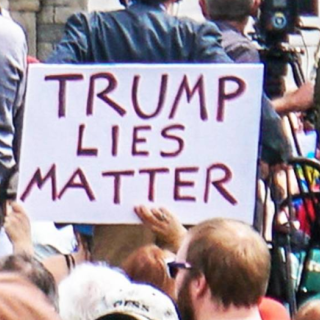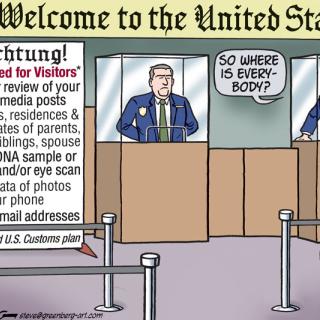This past summer the Ohio Environmental Council (OEC) stated that Issue 7 “is thin on details and short-circuits the city’s ability to mitigate the causes of climate change.”
“Because the city is already moving toward 100% clean energy, the creation of the funds in the ballot initiative is superfluous at best, and outright thievery at worst,” wrote OEC staff attorney Chris Tavenor in an email. “The initiative’s language calls for the transfer of funds into the hands of a privately held corporation, and it further permits that corporation to receive ‘administrative’ fees for the distribution of subsidies. Simply put, a corporation has placed itself in a position to benefit from taxpayer dollars when the city has already created a program in pursuit of similar goals: Clean Energy Columbus. Columbus does not need a private corporation as a financial third party in the pursuit of energy efficiency, clean energy, and electric affordability.”
A recent Dispatch headline offered this scathing condemnation as well, “Weaselly ‘green energy’ group tries to con Columbus voters out of $87 million.”
The City is also airing (expensive) TV commercials starring a perturbed Mayor Ginther urging a ‘No’ vote. Oddly, the commercial shows a board room of upper crust, white-collar white people behind Issue 7 when the man behind it is an upper middle-class African-American family man who resides in King Lincoln and coaches his kid’s soccer team.
This past summer, Issue 7 – the so-called “Columbus Clean Energy Initiative” –made it on November’s ballot, while another citizen-led environmental initiative – the Columbus Community Bill of Rights – deemed by many to be more legitimate, did not and remains in limbo.
The backers of both issues strongly believe the City deliberately worked to keep their issues off the ballot(s).
“We’ve really learned of the extent that the system is so designed to work against us,” said Bill Lyons, co-organizer of the Columbus Community Bill of Rights’ initiative, which is seeking to assure fracking wastewater doesn’t enter the region’s extensive watershed. “The system does not want democracy and doesn’t want citizens to protect their health. It’s very frustrating and hard to keep doing this because the effort involved is thousands of hours.”
John Clarke is Issue 7’s project manager and he’s been widely criticized for a lack of transparency and not fully explaining how tens-of-millions of City budget dollars will be diverted to subsidize residents’ electric bills and creating minority clean energy businesses, among other initiatives. Even many local progressives and environmentalists have soured on Issue 7.
Clarke has, as many are aware, also been indicted by the Franklin County Prosecutor’s Office on several charges related to Issue 7, including election falsification. He pled not guilty, claiming prosecutors are nitpicking errors him and other organizers made due to their inexperience with election laws.
Yet lost in the avalanche of negativity against Issue 7 and John Clarke is the fact the Ohio Supreme Court in a 5-2 decision ruled Columbus City Council “abused its discretion” when in 2020 it voted against putting Issue 7 on the ballot even though the Franklin County Board of Elections found Pro-Energy Ohio, the company hired to gather the needed signatures, had collected enough valid signatures.
“The City of Columbus illegally tried to keep this citizen’s initiative off the ballot because they did not like the substance, even though the petition committee met all of the formal requirements to get on the ballot,”said Clarke’s attorney Connie Gadell-Newton.
The City’s response to Clarke’s citizen-led initiative, and the Columbus Community Bill of Rights’ initiative, strongly suggests the City has a game plan in place to stifle citizen-driven democracy via the ballot.
Clarke, for instance, has been blasted for not speaking with local media.
“People are freaking out because John doesn’t want to be in the spotlight. He has three school-aged kids, so no he does not want to be on the news,” said Gadell-Newton.
Yet even though he has tried to remain low-key, his critics, such as the Columbus Partnership, have zeroed in on him and put a target on his back. By the way, the Columbus Partnership is co-chaired byAmerican Electric Power, which gets 45 percent of its generating capacity from coal-fueled power plants.
“Our critics have tried to personalize this,” said Clarke, a 30-year resident of Columbus. “Here’s the thing about ‘Who you are?’ The ‘Who you are?’ is part of the strategy to move away from policy and move to the personalization. It’s a lot easier to attack a person than policy.”
Because policy wise Issue 7 “is everything we stand for,” he said.
“And I say ‘we’ collectively. Left, liberal or Democrat. It’s everything we stand for,” he said. “So, it’s much easier to shoot at a person and create fault, and create flaws, and shoot at that person instead of actually going after the issue because its contrary to what your official stance is – energy efficiency, energy conservation, minority businesses, subsidies to give clean energy a chance against fossil fuels that has gotten billions, if not close to trillions, in subsidies over the decades.”
Clarke says they are simply asking Columbus, “‘Do you think this is a priority? And do you want to allocate money towards this?’”
“But of course, they see that if this passes, then that’s money, and I can cynically say this, that is money that doesn’t go to contractors, often pre-selected contractors, based upon certain ties and connections, that are in their sphere,” he said referring to the City’s own Clean Energy Columbus program.
What about the complaints leveled against Issue 7 by the Ohio Environmental Council?
“This is another turf battle,” he said. “They are working as gatekeepers as if they are only ones in the universe that care about clean energy and can do anything about it, and we don’t know who you are, because we are all-knowing, all-seeing, and we are the only ones fighting this.”
Clarke believes the City’s game plan to bury Issue 7, and any future citizen-led initiative for that matter, is far more calculated than many citizens would want to believe.
For example, Pro-Energy LLC has been maligned as Clarke’s corporation which will be the recipient of the $87 million, when it was simply hired to collect petition signatures, says his attorney Gadell-Newton.
Clarke has started numerous businesses and LLC’s and none of these are phony or fraudulent or have been shut down by the state for fraud as is being alleged, continues Gadell-Newton.
One of his petition committee members is alleged by the City and local media as being deceased. “Delores Williams is deceased, but she is a real person and she was a bona fide voter at the time the petition signatures were gathered and submitted,” said Gadell-Newton. “The issue’s petition committee members are a small group of friends and family with whom Clarke is acquainted. They consist of minority business owners, retirees, and a teacher.”
Gadell-Newton, an activist attorney by all measures, has “seen a lot of citizen initiatives before. And this one is a legit as any other I have worked with people on.”
“The City is opposed to Issue 7 because they have their own green energy initiative that just puts money in their own pockets,” she said.
Issue 7 project managers offered these details about the "Columbus Clean Energy Initiative"
• $10 Million for Energy Conservation and Energy Efficiency fund
• $10 Million – Clean Energy Education and Training
• $10 Million Minority Business Clean Energy Development fund
• $57 Million – subsidies for customer’s electric bills who choose clean energy.
There is accountability for these funds:
• Columbus City Council is delegated the authority to manage the Energy Conservation and Efficiency fund and the Clean Energy education and training fund.
• An entity selected by the petition committee will manage the minority business clean energy development fund and the subsidies for electric bills. They are subject to a quarterly audit by the City Auditor.



